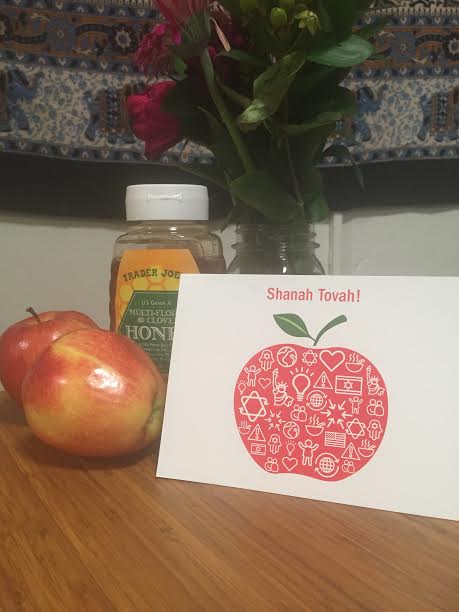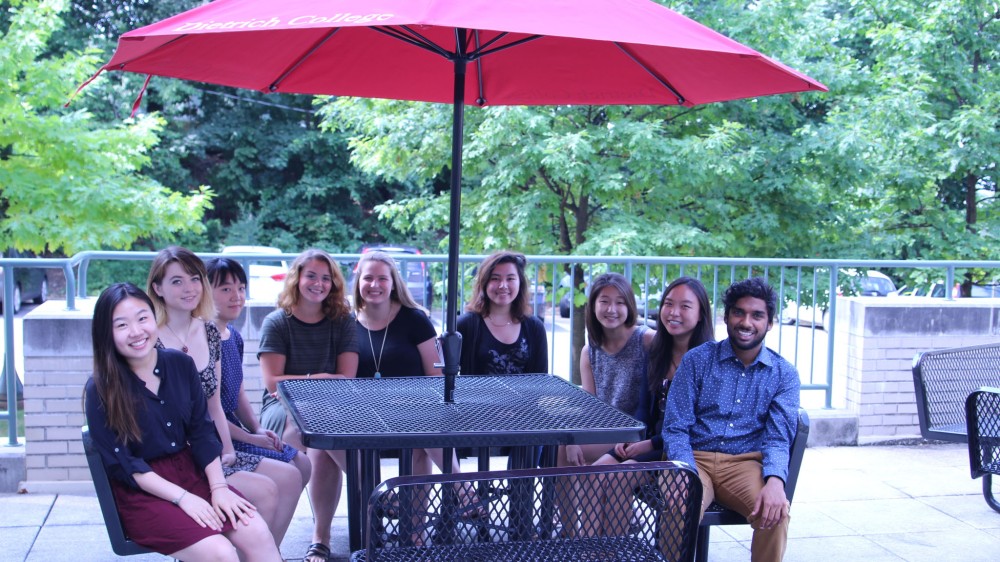 *Dusts off blog*
*Dusts off blog*
It’s been way too long since I last updated. So much has happened since, and I still can’t believe that my senior year is almost over. I’m definitely getting antsy for graduation, but at the same time, I do want these next few weeks to slow down a bit. Everyone has been asking me how I feel about graduating, and I didn’t know how to answer, but it’s finally starting to hit me that I won’t be walking this campus anymore, and I won’t be seeing all the familiar faces of classmates, professors and friends.
My thesis project has changed and grown beyond ways I could have ever foresaw. A part of me is excited to share it with others, whereas another part of me is completely terrified. It’s become something so close to me, and the thought of letting it out into the world makes me so nervous, I could throw up. I’m not scared about the judgment of others and whether they’ll think it’s good or not, but rather, I’m scared of putting these stories out there because they’re so personal to me. They’re not fiction anymore. They’re about my family.
This lack of updates from me has been because I went through period of time where I was struggling with my project. I lost faith in it. Over the summer, in the Dietrich Honors Fellowship program, I was working on a collection of fictional short stories surrounding the coming of age of a young Vietnamese-American boy. I had hoped to draw on my own experiences to craft these stories. It was exciting to see some of them come together, and I grew invested into the lives of these characters, but somehow, along the way, I lost the passion for it. Not because I didn’t believe in them anymore or that I thought what I was trying to portray wasn’t important, but because something about the project felt dishonest. And after talking about my lack of inspiration with my advisor, Jane McCafferty, we both came to realize that maybe it was because I wasn’t able to truly achieve the goal I had set out when I first wanted to pursue my honors thesis project. My goal was to portray an honest coming of age story, influenced by Vietnamese culture and values. But doing so through channeling all my emotions, experiences, and the experiences of those around me into these fictional characters felt inauthentic.
As I sat in Jane’s office, we talked about why I was inspired to pursue the theme of this project in the first place. And it was because I felt that the stories I had heard from my family and friends growing up wasn’t truly represented in literature. We talked about the experiences of my mother and my grandmother, about religion in Vietnam, about war, about violence, about daily life there, and how it was almost tragic that the amazing lives they’ve lived won’t necessarily get to be heard by others. They’re just normal people, and we tend not to focus on the stories of normal people’s lives, even though these normal people may have had extremely important experiences.
So, Jane encouraged me to tell that story. Write about my family. At first, I wasn’t excited. I was nervous. For one reason, it sounded incredibly self-indulgent, and for another reason, it felt too personal. If I wrote about my family, I would have to write about myself too, and I hated the thought of that. I definitely would consider myself more of a fiction writer, so writing about things that really happened and about real people I knew was so nerve-wracking. I felt such a weight on my shoulders to portray them in a way that was honest, and fair, but I didn’t know if I could handle that responsibility.
I started with small steps. Interview those around you, Jane had told me. Gather your inspiration, take notes and record your conversations, but don’t write anything just yet. Jane has always been great at keeping me calm throughout all my moments of anxiousness and insecurities, so I’m beyond grateful for that. I did as she had suggested and talked to those close to me. I found that it was my grandmother’s stories that truly reeled me in. I learned so many things about her life that she never told me before, that she never told anyone before. I felt inspired again. And I hadn’t felt so inspired to write in such a long time.
I had to race against the clock (and I still am! That deadline…) But I’m so happy to say that I’m actually proud of what I have accomplished. I’m proud that I wrote what I was scared to write. This collection of short stories I have put together documents my grandmother’s coming of age as a Vietnamese woman. The pieces within this collection touch upon the violence of the Vietnam War, domestic abuse, religion and discrimination against Amerasians, all through her perspective and personal experiences. The final project will hopefully take the form of a nicely bound book, so I can share it with others, but I truly hope that I can give her the first copy. The title of this collection is 9 AM, in honor of the conversations my grandmother and I had every week, at 9 AM. And when I told her that I was writing about her life, about so many intensely personal aspects of her life, I was afraid she would feel uncomfortable about it (understandably so). I was expecting a lot of questions, but the only question my grandmother asked was “Is it any good?” Haha, I sure hope so.
And even though the I’m not using any of the pieces I wrote in the summer, I don’t think of any of it as waste. I did at first. It freaked me out when I completely changed the direction of my project in the middle of my fall semester, especially when I already had completed a good chunk through the Summer Fellowship Program. But I knew that this project could have only become so important to me if I made that change. I don’t think of the time I spent over the summer was a waste. In fact, that time helped further develop my craft, read stories by other Vietnamese-American authors, and give me a space to be excited about other people’s projects and ideas. And I still am excited to see the final projects of all the other fellows. I am so incredibly grateful to the Dietrich Honors Fellowship Program because it allowed me to explore my own passions in such a safe environment. I don’t think my project could have grown into something that means so much to me if I didn’t start it as early as I did, if I didn’t have that time to be confused, to fail and to wander a bit.
As cheesy as this all sounds, it’s been a hell of a journey. So, for anyone that’s reluctant about whether they want to pursue their own honors thesis project or not, I’m a complete supporter for it. I want others to be able to have the fulfilling experience that I am lucky to have had. There’s almost no other better feeling in this world than that feeling in your gut that says “This is all actually starting to come together, and this might actually be good.” Despite all the stress, those fears and worries that come along with doing something like this, it’s worth it.
~

 *Dusts off blog*
*Dusts off blog*




You must be logged in to post a comment.